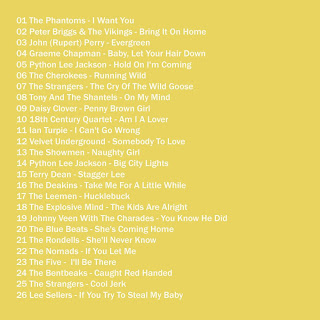Morning of the Earth is arguably the first surf movie that went beyond waves and into something of a (wordless) meditation on life based on surfing. The film is a product of it's time (very early '70's - first years of shortboard transition) and is full of back-to-the-country hippy vibes as well as some beautifully filmed surfing on Australian, Hawaian and Bali waves. The soundtrack is therefore a mixed bag of Australasian country folk (G.Wayne Thomas, Brian Cadd) and psychedelic prog-rock (Taman Shud). Like the film the soundtrack is a bit of a time machine back to a by-gone era. It is for the nostalgic or those wanting a good compilation of early 70's Australasian psych-folk stuff. The film is still one of the all-time classic surf movies too so check it out. (Amazon review)
Very few soundtrack recordings give themselves to anything more than a passing link to the film as a movie soundtrack should. Morning Of The Earth defies that definition! it cleverly assembles (in that era) Australia's finest musicians and makes a group statement through the music of a land that existed once where you could grab a change of shorts a board and a couple of cassettes in the panel van and head on up the coast! (discogs review)
–G. Wayne Thomas Morning Of The Earth 5:09
–Terry Hannigan I'll Be Alright 4:05
–Taman Shud First Things First 4:09
–Brian Cadd Sure Feels Good 3:44
–G. Wayne Thomas Open Up Your Heart 3:41
–John J. Francis Simple Ben 7:41
–Taman Shud Bali Waters 6:13
–Brian Cadd Making It On Your Own 6:00
–G. Wayne Thomas Day Comes 2:55
–Taman Shud Sea The Swells 6:13
–Peter Howe I'm Alive 3:41
–Brian Cadd Come With Me 4:56




































